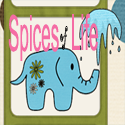 Peppermint is widely used as a food, flavoring, and disinfectant. As a medicine, peppermint is most well known for its effects on the stomach and intestines. Perhaps you've tried the various "tummy teas" available for stomach upset. Peppermint is a tasty way to relieve gas, nausea, and stomach pain due to an irritable bowel, intestinal cramps, or indigestion.
Peppermint is widely used as a food, flavoring, and disinfectant. As a medicine, peppermint is most well known for its effects on the stomach and intestines. Perhaps you've tried the various "tummy teas" available for stomach upset. Peppermint is a tasty way to relieve gas, nausea, and stomach pain due to an irritable bowel, intestinal cramps, or indigestion.Peppermint is a carminative -- an agent that dispels gas and bloating in the digestive system -- and an antispasmodic capable of relieving stomach and intestinal cramps. Peppermint can be used for too much stomach acid (hyperacidity) and gastroenteritis (nausea and stomach upset that we sometimes call stomach flu), and it is safe for infants with colic.
When treating a baby with tummy cramps, you can give a teaspoon of peppermint tea if the baby will take it, or put a cloth soaked in warm peppermint tea on the infant's belly.
Peppermint also is used topically for the cooling and relaxing effect it has on the skin. Various muscle rubs and "ices" contain peppermint oil to reduce pain, burning, and inflammation. Like other volatile oils, peppermint oil is absorbed fairly well and can have a temporary pain-relieving effect on muscles and organs that are cramped and in spasm. As with all essential oils, dilute this oil before putting it directly on your skin.
Peppermint also allays itching temporarily. Rub a drop of diluted peppermint oil onto insect bites, eczema, and other itching lesions, including the rash of poison ivy. Peppermint can help relieve some headaches, and you can rub peppermint oil onto the temples or scalp for a comforting therapy.
Menthol, the essential oil in peppermint, is credited with the herb's analgesic, antiseptic, antispasmodic, decongestant, and cooling effects. Menthol also helps subdue many disease-producing bacteria, fungi, and viruses, but because stronger herbal antimicrobials are available, peppermint usually is not the first choice of herbalists to treat serious infections.
Peppermint tea can be used as a mouthwash for babies with thrush (yeast in the mouth) or for pregnant women who wish to avoid stronger herbs and medications.
In the next section, you will learn how to prepare peppermint for herbal remedies and some of the potentially dangerous side effects.

















Hi Cecile, I have added your link to my blogroll. Have a happy year 2009! Cheers!
ReplyDeletethanks Pete :-)
ReplyDeleteHappy New Year, too!
Thanks, Pete :-)
ReplyDeleteAdded this link here also!
Happy New Year, too!
Will add this site to my list too...
ReplyDeletePeppermint is also great for making coke bombs.
ReplyDeletehttp://mulledmadness.blogspot.com/2008/12/best-use-of-peppermint-yet.html
thanks, Umma :-)
ReplyDeletehmmm, interesting. Mulled Vine :-), thanks for the comment and visit :-)
ReplyDelete